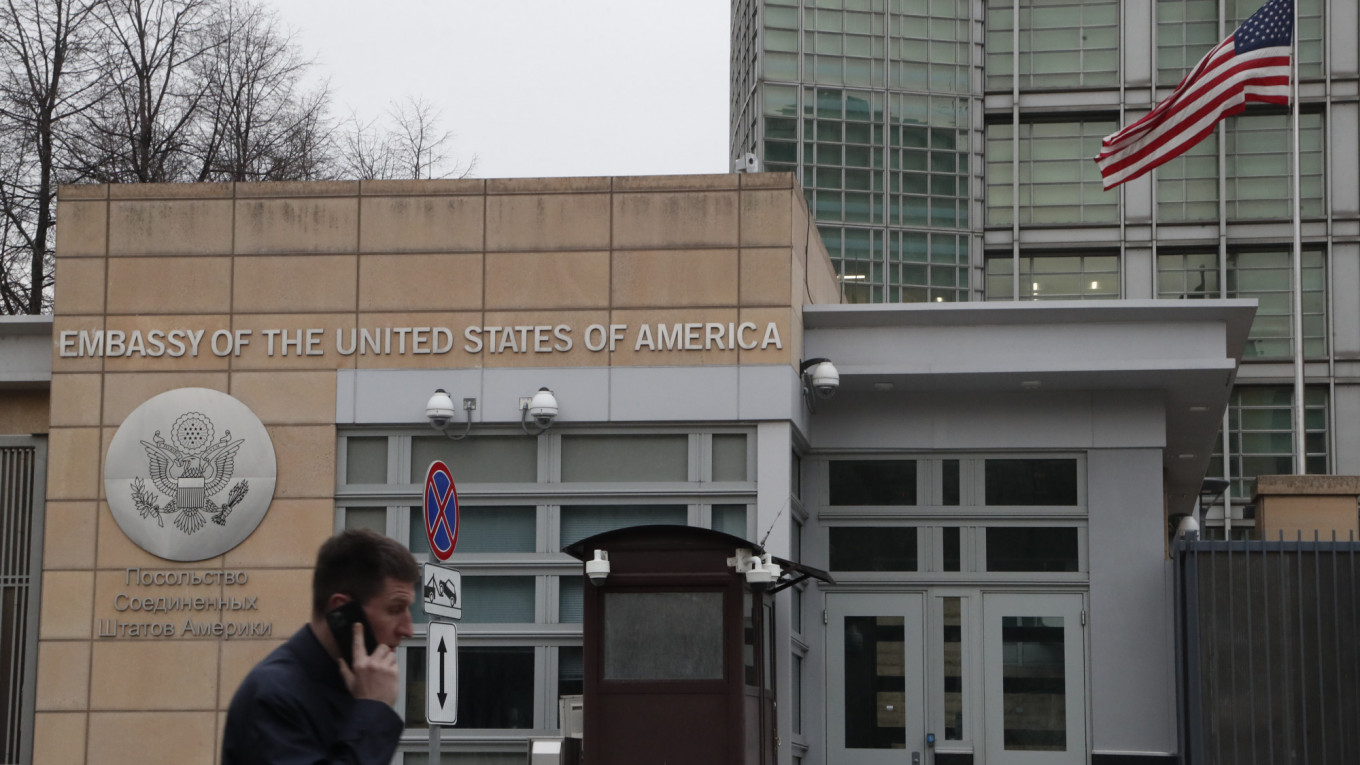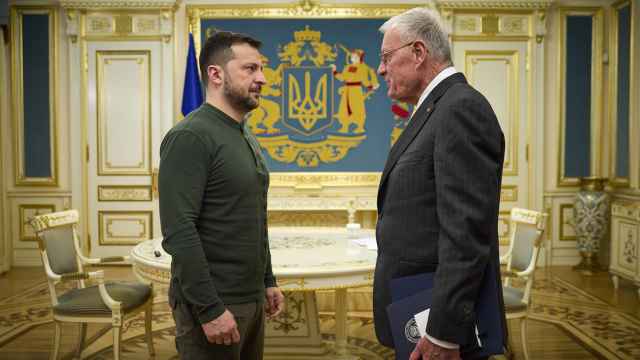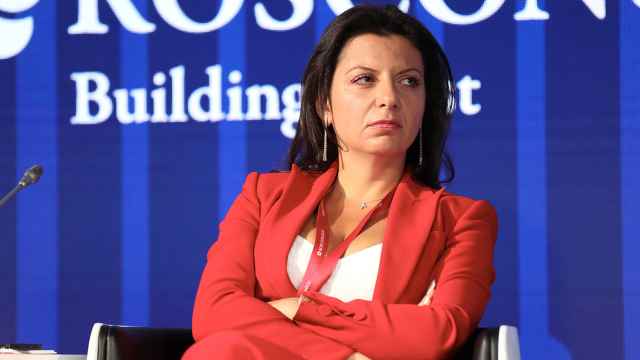Russia on Friday banned top officials from U.S. President Joe Biden's administration from entering the country as it announced a wave of tit-for-tat sanctions and expulsions of diplomats, as tensions soar between the rivals.
Moscow nonetheless said it viewed the prospect of a summit between Biden and Russian President Vladimir Putin "positively."
On Thursday, Washington had announced sanctions and the expulsion of 10 Russian diplomats in retaliation for what it says is interference by the Kremlin in U.S. elections, a massive cyber attack and other hostile activity.
Moscow in a forceful response said top U.S. officials including Attorney General Merrick Garland, Biden's chief Domestic Policy Advisor Susan Rice, and FBI chief Christopher Wray would be banned from entering Russia.
Earlier Friday Foreign Minister Sergei Lavrov told reporters that Russia was responding to U.S. sanctions in "a tit-for-tat manner" by asking 10 U.S. diplomats in Russia to leave the country while also expelling five Polish diplomats in response to a similar move by Warsaw.
Lavrov also said that Putin's top foreign policy aide, Yury Ushakov, had recommended that U.S. envoy John Sullivan leave for Washington to conduct "serious consultations."
But Russia's Foreign Ministry insisted that it viewed Biden's proposal to hold a summit with Putin "positively," adding that it was "currently under consideration."
Biden's offer earlier this week of a summit had amounted to a peace offering, as tensions between Russia and the West have escalated over the conflict in Ukraine and the new penalties levied by Washington.
The U.S. penalties widened restrictions on U.S. banks trading in Russian government debt and sanctioned 32 individuals accused of meddling in the 2020 U.S. presidential vote.
Normalizing ties
Biden had on Thursday described the new U.S. sanctions against Russia as a "measured and proportionate" response.
In March, Russia recalled its ambassador to the United States back to Moscow for consultations on the future of U.S.-Russia ties.
The rare move came after Biden said Putin would "pay a price" for alleged election-meddling and agreed with the assessment that Putin is a "killer."
Kremlin spokesman Dmitry Peskov on Friday said Putin had long talked about the importance of normalizing relations between Moscow and Washington.
"It is indeed good that the points of view of the two heads of state coincide on this," he said.
But Peskov also blasted the new round of penalties imposed by Washington, saying America's "addiction to sanctions remains unacceptable."
Finnish President Sauli Niinisto on Friday offered his country as a venue for a possible Biden-Putin meeting.
In recent weeks, Russia's massing of troops on Ukraine's northern and eastern borders, and on the Crimean peninsula it annexed seven years ago, have contributed to the sharp escalation in tensions.
U.S. forces in Europe have raised their alert status in response, while NATO has issued warnings to Moscow.
NATO concern
NATO on Friday said reported plans by Moscow to block parts of the Black Sea would be "unjustified" and called on Moscow "to ensure free access to Ukrainian ports in the Sea of Azov, and allow freedom of navigation."
Russian state media reported that Moscow intends to close parts of the Black Sea to foreign military and official ships for six months, triggering concerns in the United States and the European Union.
Sanctions as a tool for punishing Moscow have become routine since 2014, when Russia annexed Crimea and fighting erupted between Kiev's forces and pro-Russia separatists in eastern Ukraine.
Relations have plunged further more recently, with Washington accusing Moscow of interfering in its presidential elections in 2016 and 2020.
This year even before the recent alarm over the Ukraine conflict, tensions had ratcheted up sharply after the U.S. slapped sanctions on Russia over the poisoning of jailed Kremlin critic Alexei Navalny.
Ties then hit rock bottom last month after Biden, who promised to take a firmer line on Moscow than his predecessor Donald Trump, agreed with a description of Putin as a "killer."
A Message from The Moscow Times:
Dear readers,
We are facing unprecedented challenges. Russia's Prosecutor General's Office has designated The Moscow Times as an "undesirable" organization, criminalizing our work and putting our staff at risk of prosecution. This follows our earlier unjust labeling as a "foreign agent."
These actions are direct attempts to silence independent journalism in Russia. The authorities claim our work "discredits the decisions of the Russian leadership." We see things differently: we strive to provide accurate, unbiased reporting on Russia.
We, the journalists of The Moscow Times, refuse to be silenced. But to continue our work, we need your help.
Your support, no matter how small, makes a world of difference. If you can, please support us monthly starting from just $2. It's quick to set up, and every contribution makes a significant impact.
By supporting The Moscow Times, you're defending open, independent journalism in the face of repression. Thank you for standing with us.
Remind me later.






